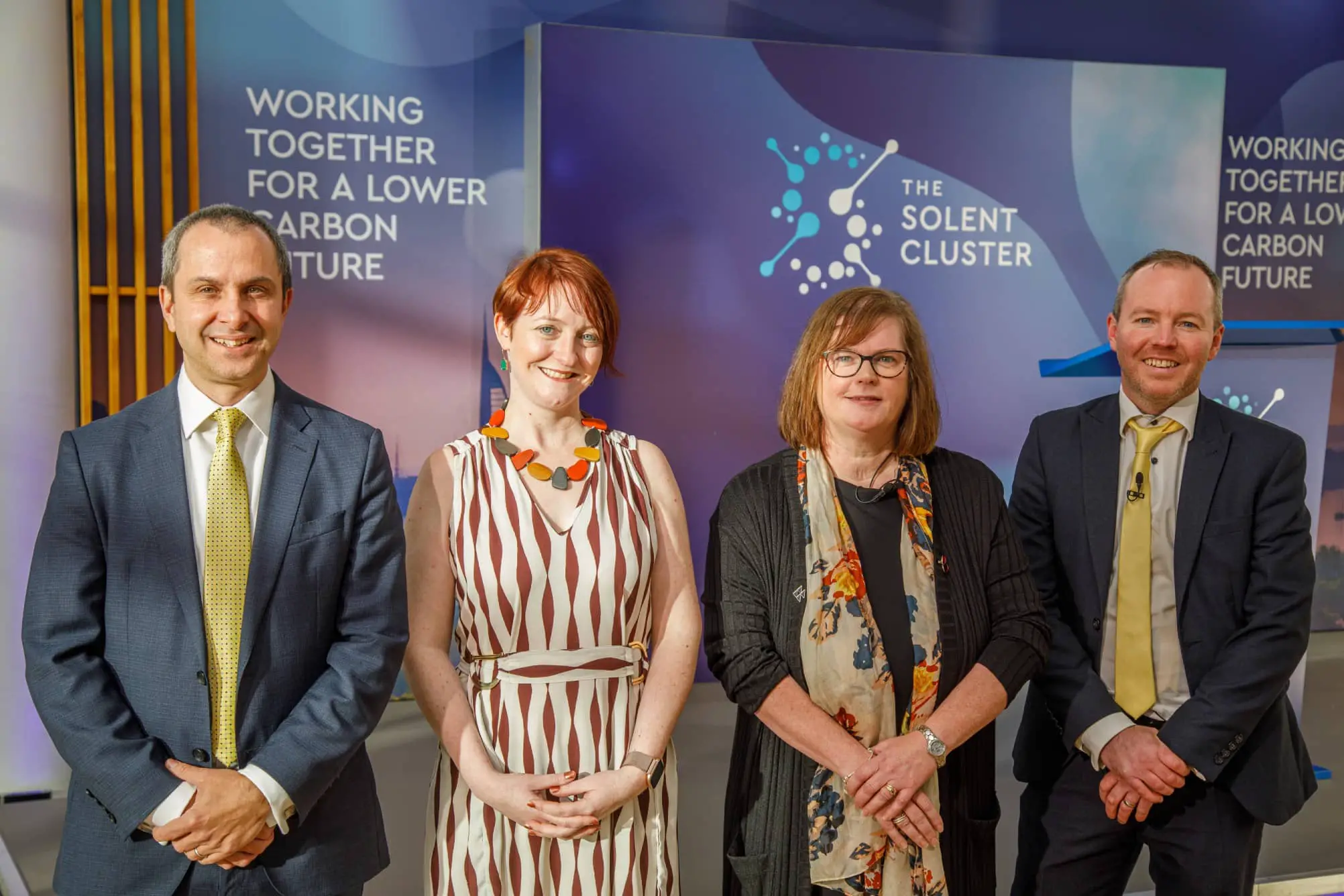Founding partners Solent Local Enterprise Partnership, ExxonMobil and the University of Southampton announced this week The Solent Cluster, the first major decarbonisation initiative that would substantially reduce CO2 emissions from industry, transport and households across the Solent and Southern England.
What is the Solent Cluster?
The Solent Cluster is a cross-sector collaboration of international organisations, including manufacturers and engineering companies, regional businesses and industries, leading logistics and infrastructure operators and academic institutions, with decades of proven expertise in carbon capture and storage and hydrogen technology.
What will it do?
The Solent Cluster could secure existing jobs and produce low-carbon fuels for sectors including maritime and aviation, as well as providing energy to heat homes, businesses, and public buildings.
This effort could position the Solent at the centre of low carbon fuel production in the UK and make a major contribution to the country’s Net Zero ambitions by 2050. The project could capture approximately three million metric tons of CO2 every year.
Mountifield: A platform for the excellent work that is already taking place
Anne-Marie Mountifield, chief executive of Solent Local Enterprise Partnership said,
“Decarbonisation is at the heart of our economic strategy for the area and the creation of The Solent Cluster will sit alongside our ambition to pioneer approaches to climate change adaptation and decarbonization, linked to our coastal setting, and establishing real expertise which other regions – nationally and globally – can learn from.
“The Solent Cluster will provide a platform for the excellent work that is already taking place and the partnership has a unique opportunity to affect real change in energy production and consumption, establishing the Solent and wider region as a leading centre for low carbon investment now and in the future.”
Ammann: An important opportunity to decarbonise the Solent Region
Dan Ammann, president of ExxonMobil Low Carbon Solutions, said,
“This is an important opportunity to decarbonise the Solent Region, and we are proud to be a part of this collaborative effort to significantly reduce CO2 emissions from multiple sectors.
“We look forward to working with our founding members and others to develop a compelling project.”
The Solent Cluster could enable organisations to bid for government investment support for projects to decarbonize the Solent region and realise the benefits that can flow to the region’s businesses and communities.
Armstrong: A monumental step forward for the region
Dr Lindsay-Marie Armstrong, associate professor of mechanical engineering and academic cluster lead for the Solent Industrial Decarbonisation Cluster at University of Southampton, said,
“The Solent is recognised as one of the leading contributors of CO2 emissions with approximately 3.2 million metric tons of CO2 emissions released from energy-intensive manufacturing processes every year. To form a decarbonisation cluster that spans the public, private and higher education sectors is a monumental step forward for the region.
“It will introduce sustainable fuels for local transportation, the aviation and the shipping sectors; create low carbon energy to heat homes, businesses and public buildings; and open up new highly skilled jobs opportunities. This can only be achieved by working together as a community, covering all sectors and ultimately working with the same desire to achieve a low carbon economic future for the Solent region.”
Image: Matt Crocker – Senior Vice President of ExxonMobil Low Carbon Solutions, Dr Lindsay-Marie Armstrong – Associate Professor within the School of Engineering at the University of Southampton and Solent Academic Cluster lead for the Industrial Decarbonisation Research and Innovation Centre, Anne-Marie Mountifield – Chief Executive of Solent LEP and Will Lochhead – Deputy Director of Industrial Carbon Capture and Hydrogen Business Models
News shared by Bex on behalf of Solent LEP. Ed





